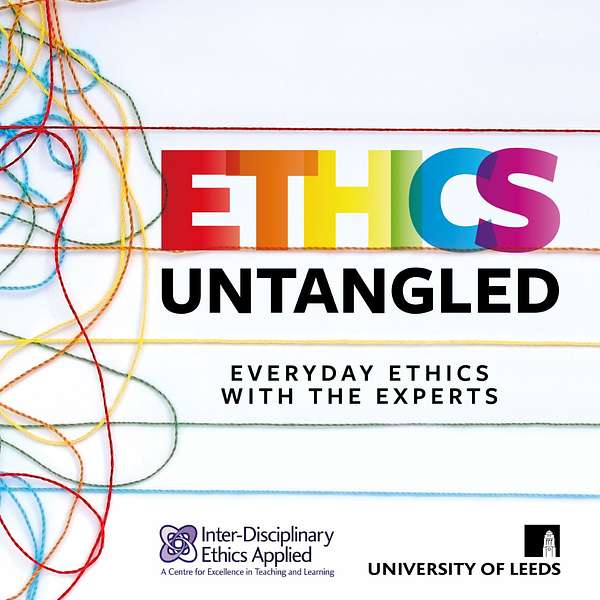
Ethics Untangled
Ethics Untangled is a series of conversations about the ethical issues that affect all of us, with academics who have spent some time thinking about them. It is brought to you by the IDEA Centre, a specialist unit for teaching, research, training and consultancy in Applied Ethics at the University of Leeds.
Find out more about IDEA, including our Masters programmes in Healthcare Ethics and Applied and Professional Ethics, our PhDs and our consultancy services, here:
ahc.leeds.ac.uk/ethics
Ethics Untangled is edited by Mark Smith at Leeds Media Services.
Music is by Kate Wood.
Ethics Untangled
30. What should doctors be doing with your data? With Jon Fistein
Use Left/Right to seek, Home/End to jump to start or end. Hold shift to jump forward or backward.
Do you know what medical information is held about you? Do you know who is allowed to have access to it? Doctors collect lots of data - often quite personal - about their patients. This data needs to be collected, stored, and shared, sometimes quite widely, so that the patients can receive effective care, but also so that the medical profession can better understand diseases, how they spread and how to treat them. In the UK, there is plenty of guidance for GPs about what information they can store, who should have access to it, and when. In fact, according to Jon Fistein, a doctor himself as well as an academic looking at the ethics of health data, there's too much guidance, it's too complex, and it's not always consistent. As a result, most GPs don't really understand what the requirements are, let alone patients. We talked about what can be done about this, and why the traditional idea of patient information being kept 'in the strictest confidence' isn't really going to cut it in today's data-driven healthcare context.
Ethics Untangled is produced by IDEA, The Ethics Centre at the University of Leeds.
Bluesky: @ethicsuntangled.bsky.social
Facebook: https://www.facebook.com/ideacetl
LinkedIn: https://www.linkedin.com/company/idea-ethics-centre/